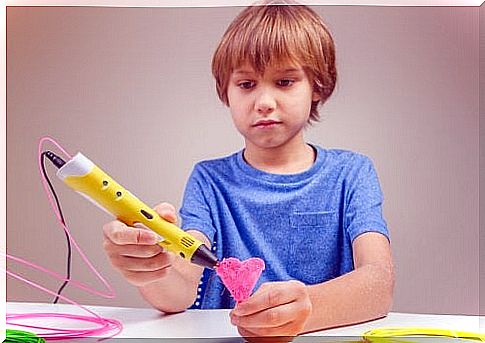How To Teach Children To Have Self-love?

Teaching children to be self-respecting is a process that develops slowly, but can begin to be addressed from infancy. It is a quality that can help children perform better in school, at home, and in personal relationships.
Self-esteem in children begins to develop in the first years of life. In this sense, parents are the most influential people in childhood and play a critical role in their development. Your words of encouragement can help build this confidence, especially when it comes to a child’s specific efforts or abilities.
Having a positive sense of yourself is one of the best gifts you can give your child. A child with self-esteem needs, at the same time, a positive and realistic perception of his abilities. Therefore, it is very important to work as early as possible.
Below, we’ve put together a list of the best ways to teach your child to build a positive self-image. Do not hesitate to put them into practice!
Ways to teach children self-love
1. Encourage the practice of sports
The first of the ways to teach children self-esteem is to encourage sports or other physical activities. Sports help children increase and build their confidence by allowing them to set goals, improve their skills, and achieve their goals. Among other benefits, it helps them recognize their strengths and accept their weaknesses.

Most importantly, however, overcoming adversity in sport is one way to build confidence. As if that were not enough, they also keep fit and learn to take care of their bodies, which is always very positive to consecrate their self-love.
2. Talk to him and lead by example
Talking to your child about his learning is a good thing. In fact, it is advisable to talk about those problems with which you encounter difficulties and need to work harder to overcome them.
It’s good for your child to hear you talk about how you value their own strengths, while acknowledging their weaknesses. Problem solving encourages self-esteem, so you should make him see that there are always positive points.
Along these lines, you should also lead by example. You must love yourself before you can teach your child to love himself. You can model this behavior by rewarding and praising yourself when you do well.
On the other hand, you can also share your strengths and weaknesses with your child and tell him what you do to overcome the most challenging situations. Teach him that all people need to work to overcome adversity; it is the best learning you can get.
3. No to criticism
The criticisms that children hear about themselves from others have a direct impact on how they feel about themselves. In fact, negative words are always harmful and not motivating. When little ones hear negative messages about themselves, it directly affects their self-esteem.
Therefore, if you want to correct some of your child’s attitudes, you must do it with patience and focusing on what you want him to do next time. Ideally, you should focus on your strengths and pay attention to what you do well and take advantage of it to put it in value. Pay more attention to strengths than weaknesses if you want to help your child feel good about himself.
4. Learn new things
Finally, you should keep in mind that learning new things is one of the best ideas to promote self-love in children. Considering that they love to learn and that the options are limitless, it is a good way to strengthen their self-esteem.
Even as a child, learning to hold a cup or taking their first steps gives them a sense of unrivaled mastery and accomplishment.

For that reason, as children get older, they must learn new things, such as dressing, reading, or riding a bike. In general, any opportunity to acquire concepts and skills is a good time for your self-esteem to grow.
We recommend that, if you teach children to do things, you should always help them at the beginning. Then it will be time for them to try, make mistakes, learn and be proud. Challenges should always be at your level.
Finally, don’t forget that teaching children to have self-love is possible if you follow these tips and practice affectionate parenting. Remember that your role as a mother is very important; your words of support are necessary to ensure a correct development of the child.










